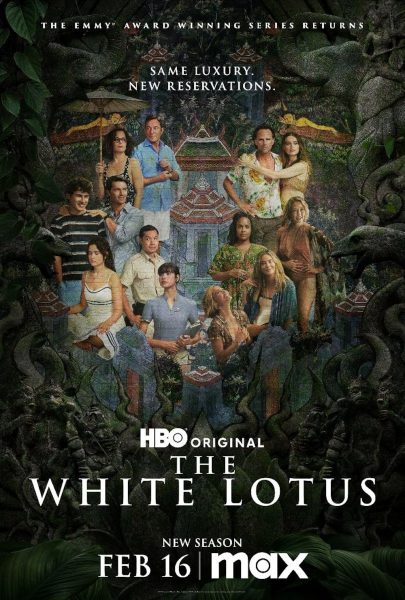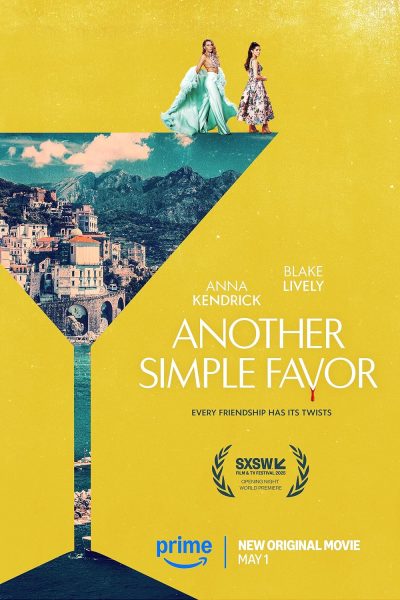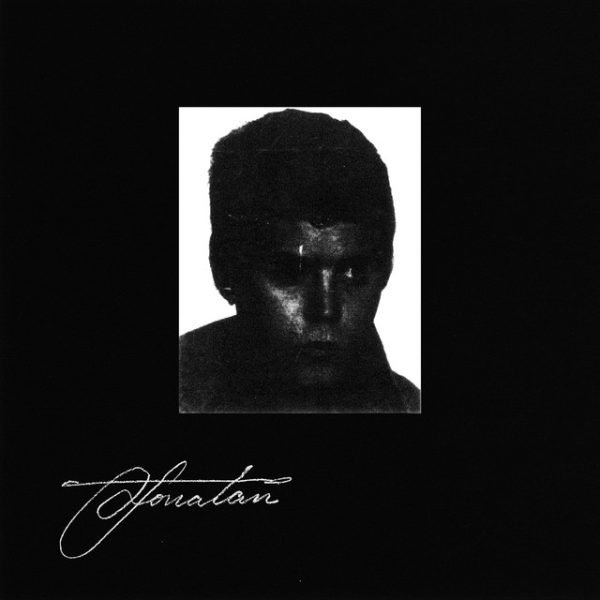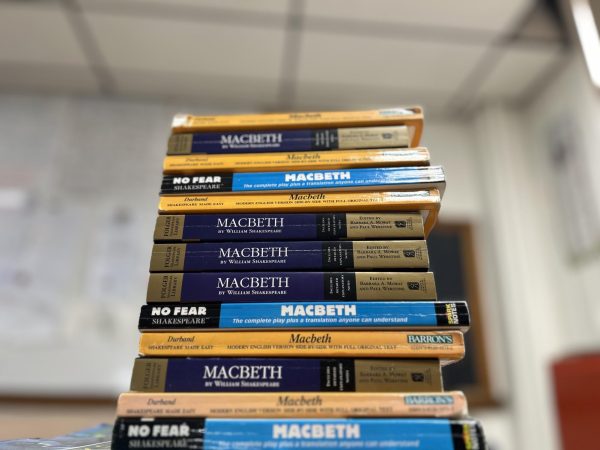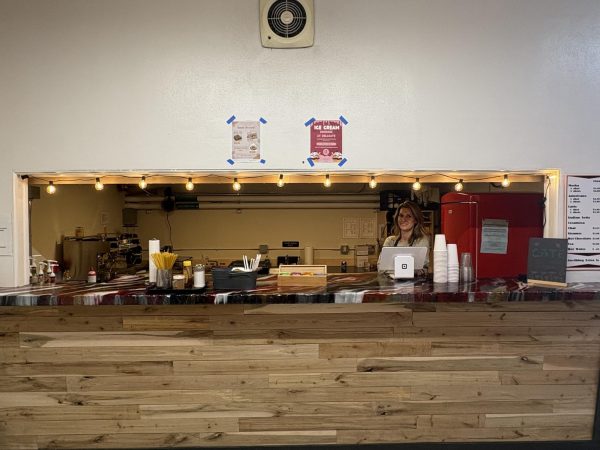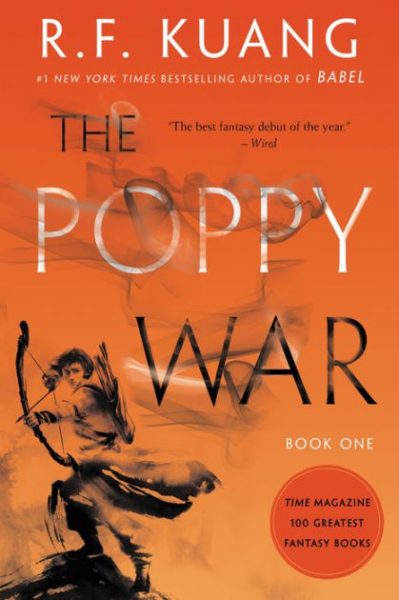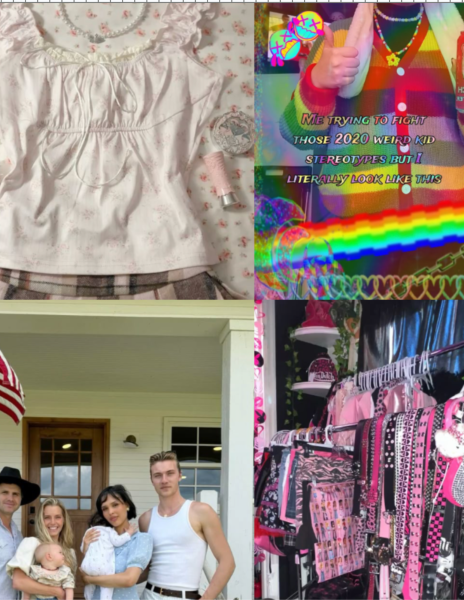Comedy going From “Special” to “SPECIAL”
It’s no secret that I’m a comedy nerd. When I’m not trying to write material, I’m most likely absorbing comedy in some form, whether it’s TikToks that comedians post, old clips on YouTube, or an album on Spotify. The one I do the most of is watching comedy specials on Netflix or HBO Max or Amazon. Back in the ‘80s and ‘90s, a comedian’s special was pretty simple. It was just a filmed version of their show meant to be the final culmination of the many weeks or months they were on tour working on a show. However, in recent years, the idea of a comedy special has changed and became something of an art form. There are still those specials that were filmed in one night or multiple performances of the same material across multiple nights and they’re still entertaining. Then there are those specials that I’d consider “incredible.”
A comedy special is largely supported by the performance. That’s the entire reason people watch the special. But there are certain aspects of specials that may seem like an oversight, but can actually greatly impact the way a special turns out. This includes the material, the lighting, and even the directing. All of these can elevate in some way the special from an entertaining thing to watch to something almost cinematic. The particular examples I want to focus on are Bo Burnham’s Make Happy (2016), Patton Oswalt’s Annihilation (2017), Gary Gulman’s The Great Depresh (2019), and Taylor Tomlinson’s Look At You (2022). Each one of these has some aspect of what I listed above as what turns a special from “entertaining” to “cinema.”
I have spoken several times about my love for Bo Burnham and his work, both in and out of comedy. Make Happy was Burnham’s second special with Netflix after his Comedy Central special Words, Words, Words in 2010 and his independently funded and produced what. in 2013. In the three years between what. and the show that became Make Happy, Burnham experienced 12 anxiety induced panic attacks. What Burnham does with this special is elevate his comedy performance into a one-man show that is expertly directed and produced. The lights within this special are just as important as the material within. The Make Happy show concludes with the famous “Kanye Rant.” Mimicking Kanye West, Bo starts the song by singing about fairly innocuous complaints in life like not being able to reach his hands into a Pringles can or overstuffing a Chipotle burrito. Both the backing track and Burnham’s vocals build up to the most important part of the song, as Burnham crouches down and every light onstage goes out. The lights come up again on an extreme closeup on Burnham as he explains to the audience “I don’t think I can handle this right now.” As he stands up, a single light behind him turns on, silhouetting Burnham, making him look like this deity before the audience. As the song concludes, all the lights turn on and flash and go out once again as Burnham thanks the audience and “Hopes that they’re happy.” It’s impossible to put into words the effect that this song or performance or monologue had on me at the time I first saw it and is really something that has to be watched to truly appreciate, because my writing about it does not do it justice. Even after all that though, the special has one more emotional gutpunch.
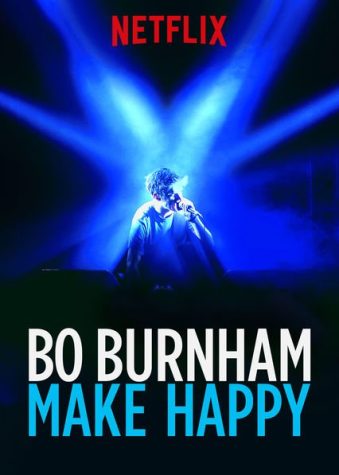
Courtesy of IMDB
After going backstage at the end of his show, Burnham is in his guest house (the same guest house where all of Inside would eventually be recorded/performed). The cheering and applause of the audience harshly and abruptly ends as Burnham sits at his piano and plays the final song. The song has no official title, but fans have named it “Are you Happy?” In one long take, Bo sings about finding satisfaction in what he’s doing and his conflict in finding happiness. He wants happiness in his life, but when he doesn’t have it, he panics and that scares him because he feels he’s wasting the happiness he should be owed after all of his success. It’s a terrifying thought that Burnham expertly delivers in such a short and beautiful song. The special ends with Bo going out and towards what really makes him happy, his girlfriend Lorene and his dog Bruce. The screen fades to black and the credits roll.
Make Happy was the beginning of this recent elevation of comedy specials and because of that as well as the material within it, it is what I would consider to be above the basic comedy special.
Patton Oswalt has been doing comedy since 1988 and has recorded six specials over his career. Like several other comedians, his newer specials have been produced and released by Netflix. These specials are Talking For Clapping, Annihilation, I Love Everything and, We All Scream. What makes Annihilation stand out from those other specials is the context surrounding it and how it affected the material in the show. The first half hour is your normal standup comedy show, with Oswalt telling stories about watching a bar fight or his thoughts on how Trump hates the work involved with being President. Then the special shifts and demonstrates what I meant earlier when I mentioned how the context around a show impacts the show itself. 18 months before taping Annihilation, Oswalt’s wife, Michelle Mcnamara, unexpectedly passed away from an accidental drug overdose. Suddenly, he’s widowed and has to learn how to carry on, not just for himself, but for Alice, Oswalt’s young daughter.
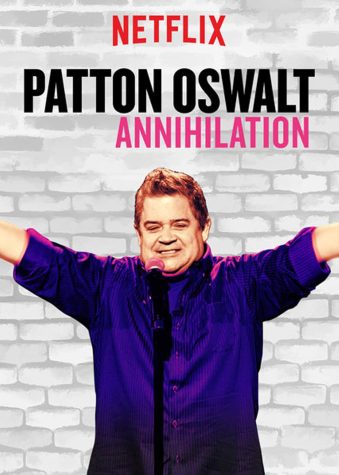
Courtesy of Rotten Tomatoes
The remainder of the special is him explaining to the audience how his and Alice’s lives have changed while going through the “numb slog” that is grief. There are several moments in telling his story that have no humor, and it’s easy to understand why. Oswalt is known for taking a dark concept and examining it to find some little nugget of something that can be laughed at, but doesn’t because he just can’t. One of the first times of this happening is Oswalt telling the audience about having to tell Alice that her mom had passed and how he believes that having to tell his daughter about her mom passing will be harder for him to recover from. He does bring back the humor when he tells about how taking Alice back to school was made awkward by little kids letting slip that “when my mom and dad stopped living together, I had a stepmom right away.” As Oswalt continues his story, you can tell that he needed to do that show. At that point, talking about Michelle to everyone onstage, it almost seemed like you could see a huge weight lifting off Oswalt’s shoulders and he slowly transitioned back to the material he’s more comfortable with, talking about Halloween and what it’s like trying to pitch movies to studios. He ends the set with the message his wife lived by: “It’s chaos. Be kind.”
Annihilation is such a good special because of how poignant it is within Oswalt’s life and career. The material is delivered beautifully and the special itself was masterfully directed by Bobcat Golthwait. Moments that are meant to be tough to get through and intimate are that way on purpose though because the camera slowly zooms in on Oswalt as he’s talking about Michelle. It’s a beautiful special and a really touching tribute to his late wife that deserved more accolades than it got.
Half comedy special, half documentary, Gary Gulman’s The Great Depresh is important not because of the material, but because of the underlying message. The special is about mental health and why it’s so important. In between interviews with his mother, his wife, and his therapist, Gulman is onstage talking about his realization in having and his eventual treatment for his anxiety and depression. Gulman talks about his childhood and the pressure he had put on by himself and the adults around him while being a basketball turned football player. In high school, Gulman was over six feet tall and over 250 pounds, so it was natural that he was badgered to play football, eventually accepting a scholarship to Boston College to play.
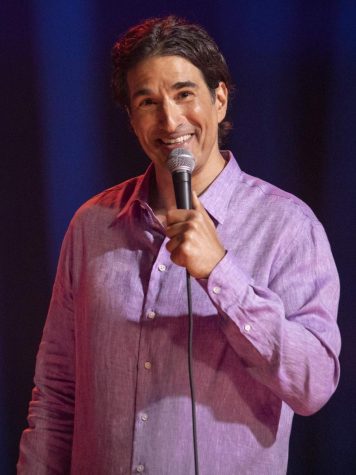
Photo courtesy of IMDB
Within weeks of getting to training, Gulman dropped 30 pounds and considered suicide and his coach introduced him to therapy, which he has been taking ever since. When Gulman was at his worst around 2017, he self checked into a mental health institution and immediately began to turn things around for himself. He explained in one of the interviews before one of his first comedy shows back: “I feel comfortable talking about it because I came out the other side.”
The Great Depresh is very important as a special and as a documentary. With its message regarding and destigmatizing mental health, anyone who is feeling those negative thoughts can watch that and realize that it’s not just them. That’s so important as someone who recently has been diagnosed with anxiety and why The Great Depresh is cinema instead of just a comedy special.
Taylor Tomlinson was only 25 in her first Netflix special Quarter Life Crisis, which was released just before the first COVID lockdowns. Since then, her popularity has exploded and in March 2022, her second special Look At You was released on Netflix. Look At You is more personal than Quarter Life Crisis and Tomlinson acknowledges that right away by telling the audience she was diagnosed as bipolar over the quarantine. Tomlinson describes how she came to that conclusion by telling her therapist the realization that her combination of prescription medicine is commonly used to treat bipolar disorder. Tomlinson then further destigmatizes mental illnesses by saying, “I don’t think anybody should feel bad if they get diagnosed with a mental illness ’cause it’s just information about you that helps you know how to take better care of yourself.”
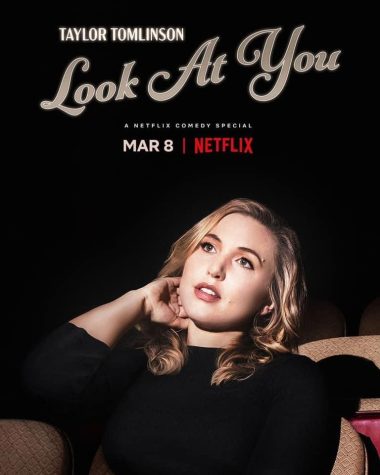
Photo courtesy of IMDB
Tomlinson goes into one of my favorite comedic analogies in recent memory. She compares medications for mental illnesses as arm floaties and life is a public swimming pool. You may need your arm floaties to be able to swim, but you at least still get to be in the pool. It’s a fantastic comparison that doesn’t shame people for having or needing medication for mental illness, but to help people understand it. The rest of the special is Tomlinson talking about how her mental health may be impacting her dating life, but she doesn’t care.
It’s only a short part of Look At You but that analogy is so important. It further destigmatizes mental health and explains it to people. It’s a fantastic analogy that only a comedian could come up with and verbalize for an audience. While it’s not as cinematic or visually important as the other examples, it’s the material that elevates it.
Comedy specials are being changed. Sure, the basic concept of “camera follows as the person says funny” will stay the same. But comedy is a changing art form and the way they are filmed is advancing and I hope that this new and revitalization of comedy specials stays for several years and if so, I look forward to seeing what could be added to this list.
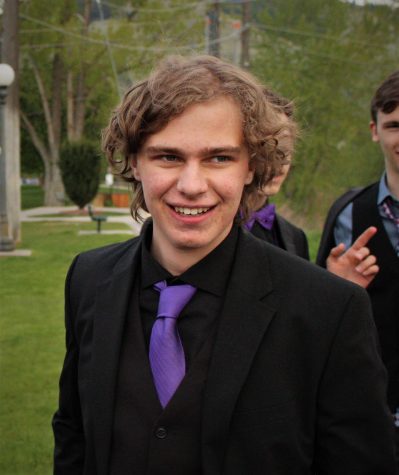
Oh, hello. My name is Alexander Blaide and I am a senior. This will be my second year writing for the Lance and my first as an editor. I mainly cover reviews/opinion...

